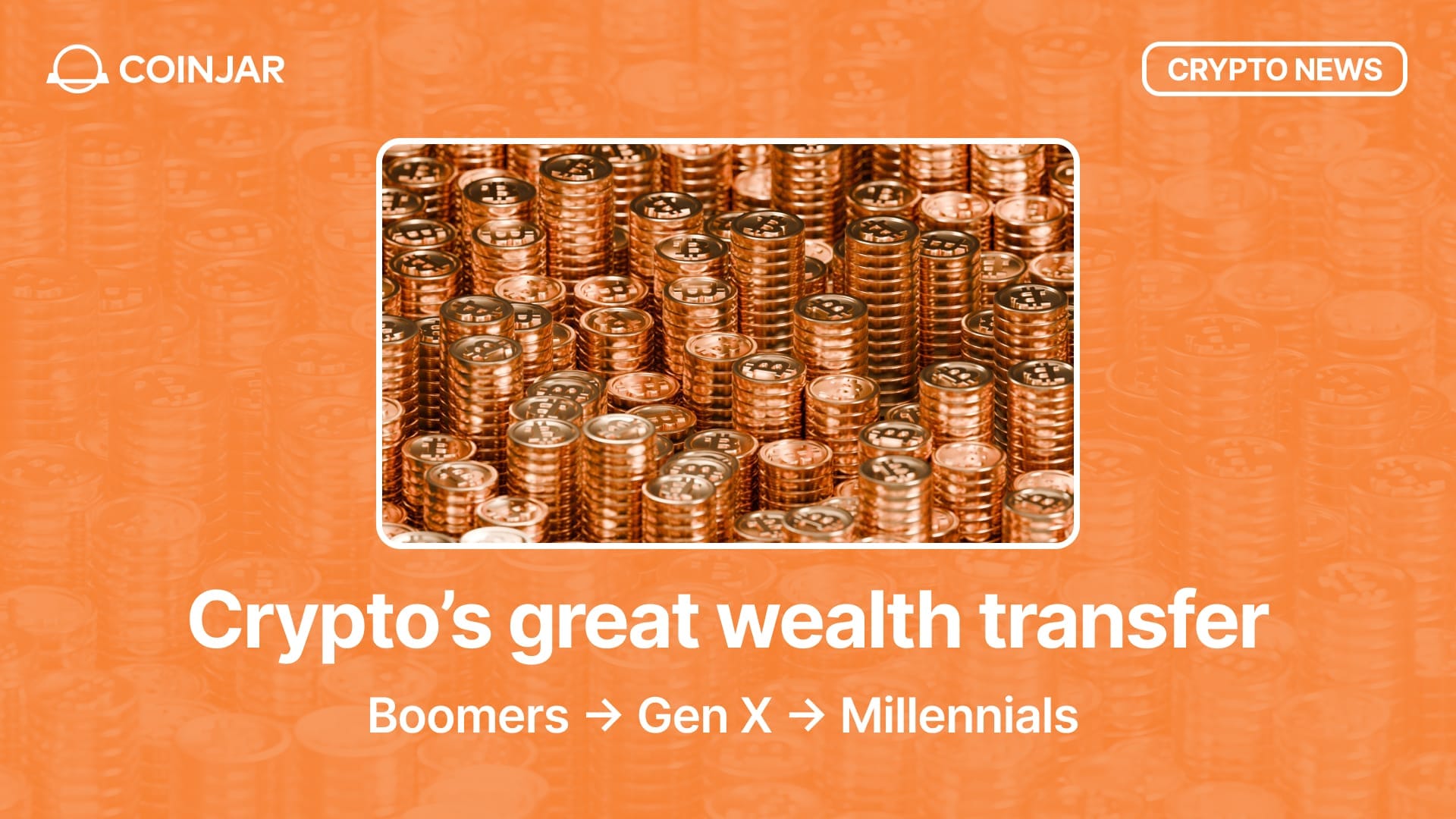
Over the next two decades, the largest transfer of wealth in history is set to unfold. More than $124 trillion will move from Baby Boomers to their heirs.
Gen X sits in the middle, inheriting first and then passing wealth down again.
Gen X as the “bridge generation” could play an important role in shaping whether crypto becomes a mainstream part of global portfolios.
For context:
Baby Boomers: Born 1946–1964, they’re 61–79 years old.
Generation X: Born 1965–1980, they’re 45–60 years old.
Millennials (Gen Y): Born 1981–1996, they’re 29–44 years old.
Gen Z follows Millennials, born 1997–2012 (today’s 13–28 year olds).
Gen Alpha is the youngest, born 2013 onward.
History shows that wealth transfers don’t just move money. They change how money is invested.
In the mid-20th century, older generations held most of their wealth in government bonds. But after inflation eroded bond values and yields fell, younger investors began piling into stocks. Of course, real estate and other assets were in the mix too.
The shift from bonds to stocks, however, helped fuel decades of market growth and reshaped how families built and preserved wealth.
Baby Boomers, who came of age during the longest bull market in history, largely embraced the stocks model. As they accumulated wealth, stocks became the backbone of retirement funds and stock-based portfolios. Now, as Boomers reach the end of their lives, the transferring of assets begins. Gen X is the first in line to inherit.
Gen X is often overlooked, but they’ve had a unique financial journey. They built careers and wealth during the dot-com boom and bust, the housing bubble, and the 2008 financial crisis. They’re comfortable with stocks but also more skeptical of “traditional safety” than their parents.
Some have already dipped into crypto, though often with a cautious approach. This makes Gen X a transitional generation, blending Boomer conservatism with Millennial experimentation.
Millennials and Gen Z are different again. They grew up with the internet, mobile banking, and digital-first experiences. Surveys show that everyday Millennials and Gen Z are more likely to own crypto and to allocate more to alternative investments than older cohorts. They view Bitcoin and Ethereum not just as investments but as digital-native stores of value. While they do own traditional assets, they are far more open to new investment options like crypto compared to their grandparents.
For these heirs, inheriting a portfolio of only blue-chip stocks may feel a little outdated. Just as stocks became the wealth vehicle of choice for Boomers and Gen X, digital assets may become the natural choice for Millennials. With trillions set to flow into their hands, crypto could shift from a niche allocation to a mainstream one.
Heirs in this generational chain are predicted to possibly want:
Gen X’s gradual adoption may ease this transition, while Millennials and Gen Z could accelerate it.
Wealth transfer today might not be just about wills and trusts, it could be about adapting to a new mix of assets. That means:
The last great wealth transfer pushed capital from bonds to stocks. This time, crypto is poised to benefit as trillions will flow from Boomers through Gen X to Millennials and Gen Z.
Gen X will likely act as a cautious bridge, introducing digital assets into portfolios, while Millennials may fully embrace them as a core part of their financial future.